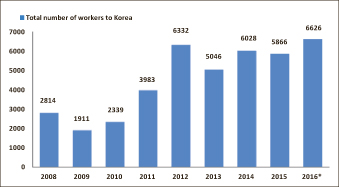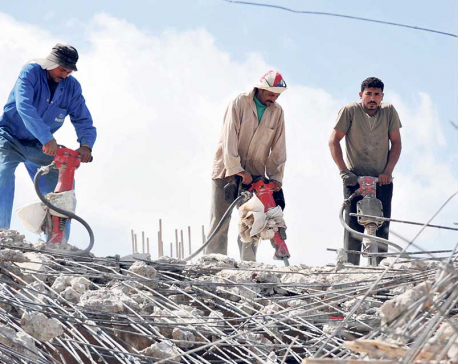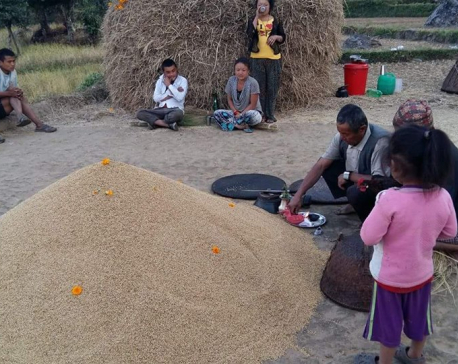
OR
Labor migration to Korea highest in nine years
Published On: September 15, 2016 01:50 AM NPT By: Siromani Dhungana | @siromanid

KATHMANDU, Sept 15: Nepali migrant workers heading to South Korea totaled nearly 6,626 in the first eight months of this year, with most of them selected to work in the agricultural and industrial sectors, according to data maintained by EPS Korea Section under the Department of Foreign Employment.
This is the highest number of labor migration to Korea in the last nine years since the beginning of Employment Permit System (EPS), according to the office.
“As there are still four more months before this year comes to an end, the number of Nepalis heading to South Korea is bound to get even higher,” according to Shobhakar Bhandari, an officer at the EPS Korea Section.
A total of 5,866 migrant workers had left the country for Korea in 2015.
The record number of labor migration to Korea can be attributed to the large number of applicants who passed the sixth edition of the Test in Proficiency in Korean (TOPIK) language under the Employment Permit System (EPS) that was held in 2015, Bhandari said.
Candidates who passed the exam this year will soon start the process of medical examination and appear to test their skill, Bhandari said, adding that the new batch of eligible Nepalis will start heading for South Korea from January 2017.
Employment Permit System (EPS) is a Korean government-run work scheme designed to provide migrant labor to enterprises that struggle in hiring sufficient number of national workers.
“The government is hopeful that the migrant workers bring back knowledge from Korea that can contribute to the country in the future,” he said.
South Korea has become a lucrative destination for Nepali migrant workers since Nepal entered the Employment Permit System (EPS). In July, 2007, Nepal and South Korea signed a memorandum of understanding under the EPS that paved the way for Nepali workers to go to South Korea for work. Since then, around 40,000 workers have found employment in South Korea under the EPS, according to the EPS Center.
You May Like This

Social trend of migration effecting more migration
KATHMANDU, Feb 9: Rather than solely due to the lack of job opportunities in the home country, the existing social trend... Read More...

MAJOR CHALLENGE TO SAFE LABOR MIGRATION
The news these days always has cases or incidents of death, migrant workers’ plight, and of their family members being... Read More...

Paddy production highest in seven years
KHOTANG, Dec 18: For the second year, paddy production has increased in Khotang. Last year, the district produced 28,536 metric... Read More...





Just In
- MoHP cautions docs working in govt hospitals not to work in private ones
- Over 400,000 tourists visited Mustang by road last year
- 19 hydropower projects to be showcased at investment summit
- Global oil and gold prices surge as Israel retaliates against Iran
- Sajha Yatayat cancels CEO appointment process for lack of candidates
- Govt padlocks Nepal Scouts’ property illegally occupied by NC lawmaker Deepak Khadka
- FWEAN meets with President Paudel to solicit support for women entrepreneurship
- Koshi provincial assembly passes resolution motion calling for special session by majority votes






_20220508065243.jpg)






Leave A Comment